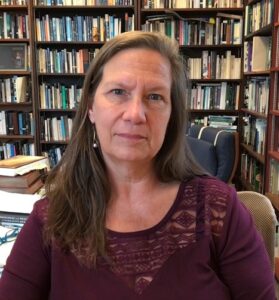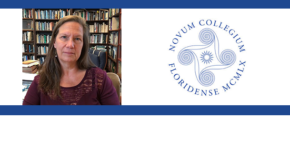 Exercising rights can be key to a healthy society.
Exercising rights can be key to a healthy society.
Miriam Wallace, professor of English and gender studies at New College of Florida, explores why.
Miriam L. Wallace is Professor of English and Gender Studies at New College of Florida where she has taught English literature from 1660 forward since 1995. She is the author of Revolutionary Subjects in the English ‘Jacobin’ Novel (Bucknell University Press, 2009), which was supported by an NEH College Teacher Fellowship. She has written widely on eighteenth and early nineteenth-century British literature and culture, most recently recovering the anomalous-bodied public speaker “Sir” Jeffrey Dunstan (in Making Stars: Biography and Celebrity in Eighteenth-Century Britain). She is co-editor with Dr. Mona Narain of the Transits: Literature, Thought & Culture 1650-1850 series with Bucknell University Press.
Free Speech and the 1780s Elocution Movement
Free speech and academic freedom are dearly held rights in the United States. The first is enshrined in our constitution, and the second was codified in the 1940 “Statement of Principles on Academic Freedom and Tenure.”
But how did we get here?
About the time the U.S. Constitution was being debated, in Britain an “elocution” movement was giving common folk access to oratorical training and public speech. Pronouncing dictionaries (promoting standard pronunciation) and elocution handbooks (with excerpts for oratorical practice) were published in increasing numbers. New venues for practicing public speech included ‘spouting’ clubs for amateur theatricals, debating societies for deliberative speech, and corresponding societies that proposed political reform.
But as the idea that political or legal matters were something on which everyone could speak took hold, efforts to limit such speech also expanded. In 1795, debating and abolition societies were silenced by the passage of two “gagging acts.” One made writing or publishing calls for political reform or mocking the government treasonous; another required a magistrate’s approval for any meeting of more than 50 persons. In the new United States, the 1798 Sedition Act also criminalized speaking or printing criticism of the government that it found false or scandalous. Even fiction was suspect.
So why should we care about this ancient bit of history today?
This matters because it reminds us that the right to speak openly and without fear about our government and our legal system is vulnerable if not continually exercised. A liberal arts education is rooted in rhetorical practice; it helps us to understand how evidence-based argument, persuasive speech, and common eloquence work on us as auditors and thus matter.
Read More:
[Bucknell University Press] – Transits: Literature, Thought & Culture, 1650-1850
[Rowman & Littlefield] – Revolutionary Subjects in the English ‘Jacobin’ Novel, 1790-1805
[New Music New College] – It’s Alive! A Monstrous Circus On Frankenstein
[WGCU] – We get first-hand reactions to what’s unfolding at New College of Florida
[National Endowment for the Humanities] – Hey, Who You Callin’ a Jacobin?

Comments
One response to “Miriam Wallace, New College of Florida – Free Speech and the 1780s Elocution Movement”